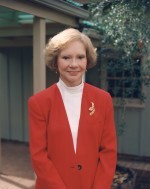 She said it first and she said it best: “There are only four kinds of people in the world: those who have been caregivers, those who are currently caregivers, those who will be caregivers, and those who will need caregivers.”
She said it first and she said it best: “There are only four kinds of people in the world: those who have been caregivers, those who are currently caregivers, those who will be caregivers, and those who will need caregivers.”
As one of the pioneers behind a growing caregiving movement in this country, Mrs. Carter became the first public figure to truly champion the cause of those 65 million Americans today caring for loved ones who are older, chronically ill, disabled, have special needs or are challenged by mental illness.
Our caregiving contributor, Sherri Snelling, talked with former First Lady Rosalynn Carter about the strides made for caregivers over the last few decades and what her hope is for the future. They also talked about her caregiving roles – providing comfort and care to multiple family members over the years. As Mrs. Carter gets ready to celebrate her 85th birthday on August 18, Sherri asked her to share her wish list for caregivers in this country.
A Backwards Glance
“My work with caregiving grew out of my mental health work,” says Mrs. Carter. “I had seen so many families burdened with caregiving for those with mental health issues. When we convened a meeting in the 1980s to discuss caregiving issues, it quickly spread from there.” She had reached out to organizations such as the American Heart Association, the American Lung Association, the American Medical Association and other groups that could help both family caregivers and health care professionals. Amazingly all these groups agreed that caregiving was critical to the health of the patient but no one had any focused caregiving programs.
That was then. Over the last three decades, Mrs. Carter is encouraged by the public support for caregivers. She points to essential government programs such as the National Family Caregiver Support Program, authorized as part of the Older Americans Act, and administered through the Administration on Aging, it provides grants to states to help caregivers keep loved ones at home as long as possible. She also believes programs such as the Lifespan Respite Care Act are critical to helping caregivers with a huge issue identified back in those early 1980s meetings: burn-out. To avoid burn-out, caregivers today can find respite services, training and other information through the ARCH National Respite Network and Resource Center.
“Of course we always want more but it is wonderful to see how this issue [of caregiving] has become a major, major issue,” says Mrs. Carter.
She is also proud of the fact that the program she founded and which bears her name, the Rosalynn Carter Institute (RCI) for Caregiving at Georgia Southwestern State University is the “only university with a caregiving program.” In talking with Dr. Leisa Easom, executive director of RCI, the Institute is focused on taking evidence-based research to understand caregiver needs and then translating that research into programs. Since 1987, RCI has been a leading advocacy, education, research and service unit for caregivers at the university and beyond the campus. Working with numerous national organizations and community-based services across the country, RCI recently launched a satellite program in Korea and will continue to expand its caregiving expertise and support internationally.
While Mrs. Carter is proud to have founded the first university-based caregiving program, she has only started. Her hope is that the global aging crisis will encourage even more sectors, including government, academia and U.S. businesses, to understand the importance of focusing on the caregivers and the services and support they need.
Birthday Wishes for Caregivers
Mrs. Carter has several wishes for caregivers that she would like to see come true over the next several years. They include caregiver education and support to deal with grief as well as guilt. She feels coping with these twin demons can help caregivers on their path to self-care which is so critical for dealing with the overall long term care issues in this country.
“The first thing we focused on back in the 1980s was caring for the caregivers,” she recalls. “I spoke at a caregiving event back then and audience members came up to me afterwards crying saying that this was the first time someone understood what they were going through.” She also advises, “People don’t want to admit that they are caregivers, they feel it is just their responsibility to care for a mother or a grandmother,” says Mrs. Carter. Beyond self-identifying as a caregiver she also believes, “They also have to recognize the need for help and be willing to receive help.” She realizes this is easier said than done. I asked her if she had identified herself as a caregiver through the years and she laughed, “No, I didn’t realize I was a caregiver until I got involved in this work.”
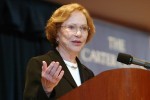 She also hopes for continued understanding and acceptance of those with mental health issues, with a move toward eliminating the stigma that surrounds these individuals and their family caregivers. While she believes there is more attention to issues such as bi-polar disorder, schizophrenia, Alzheimer’s disease and post-traumatic stress disorder (PTSD), we need to move beyond awareness to acceptance and she feels that we are not there yet.
She also hopes for continued understanding and acceptance of those with mental health issues, with a move toward eliminating the stigma that surrounds these individuals and their family caregivers. While she believes there is more attention to issues such as bi-polar disorder, schizophrenia, Alzheimer’s disease and post-traumatic stress disorder (PTSD), we need to move beyond awareness to acceptance and she feels that we are not there yet.
The programs that support the participation that Dr. Easom and RCI had in Averting the Caregiving Crisis, a report issued this spring by several caregiving thought leader organizations that identifies six key caregiving strategies are also part of Mrs. Carter’s hope for the future of caregiving: 1) Educating the public; 2) Understanding needs through evidence-based research; 3) Translating that research into programs; 4) Leading policy change around long term care; 5) Investing in sustainability for programs; 6) Creating more leadership around caregiving through public and private partnerships.
Her passion and advocacy come from a personal place and a lifetime dedicated to understanding the challenges – emotional, physical and financial – that accompany caring for a loved one. Rosalynn was only 12 years old when her father was diagnosed with terminal leukemia, a battle he lost just three months later. As the eldest daughter, she helped care for her ailing father and after his death supported her mother by also caring for her younger siblings. She took up caregiving again for several relatives with cancer after she left the White House. She relates how all of President Carter’s siblings succumbed to cancer and he also lost his mother to breast cancer. Rosalynn helped care for several of these in-laws and also cared for her mother for many years until she passed in 2000 at age 94. In 2002, she was called to care again for her younger brother who had a stroke. He was living all alone in Ohio so he moved closer to Rosalynn in Plains, Georgia, so she could care for him.
“I have seen firsthand why it is important for families to have places to go to for help – it is so crucial.”
As Mrs. Carter gets ready to blow out the candles on her birthday cake, she is looking forward to the fly-fishing vacation with former President Carter he has promised her. On August 18th we celebrate a true caregiving champion and let us wish that the spotlight Mrs. Carter has put on caregivers never dims. Happy Birthday Mrs. Carter!

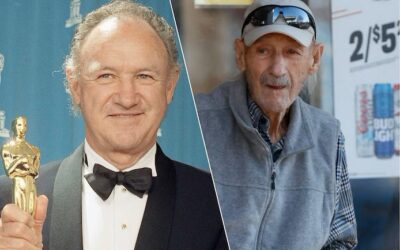
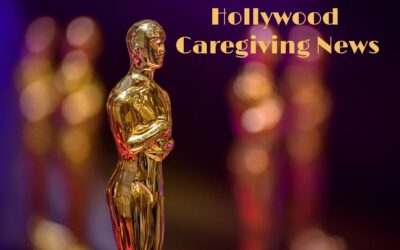
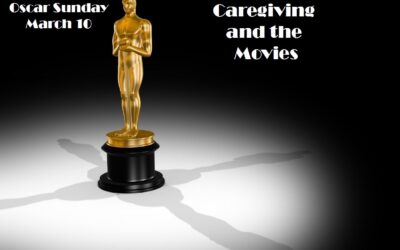
0 Comments